7 Home HVAC & Heat Pump Trends U.S. Homeowners Should Watch in 2025
As we approach 2025, homeowners are increasingly aware of how their HVAC and heat pump systems can contribute to energy efficiency and comfort. Here are seven key trends in home HVAC and heat pump technology that every U.S. homeowner should be mindful of as they plan for the future.
Smart Thermostats Dominate
Smart thermostats are now becoming a standard feature in modern HVAC systems. These devices not only allow for remote control via smartphones but also learn your preferences and adjust settings accordingly. In 2025, expect to see even more advanced features, such as integration with smart home systems and improved energy usage analytics.
Increased Use of Geothermal Heat Pumps
Geothermal heat pumps harness the earth’s stable temperatures to provide efficient heating and cooling. As the push for sustainable energy grows, these systems are becoming more popular among environmentally-conscious homeowners. By 2025, advancements in technology are expected to lower installation costs and increase efficiency, making geothermal systems a more accessible option for U.S. homeowners.
Enhanced Air Quality Solutions
Homeowners are becoming more aware of the importance of indoor air quality. Advanced HVAC systems in 2025 will be equipped with enhanced air purification technologies such as UV lights and HEPA filters. These features not only combat allergens but also help eliminate viruses and bacteria, contributing to healthier living environments.
Integration of Renewable Energy Sources
With the increase in solar energy adoption, HVAC systems are evolving to integrate with renewable energy sources. Homeowners will benefit from hybrid systems that can switch between traditional electricity and solar power, significantly reducing utility bills. Look for systems that include smart energy management to help you optimize energy consumption effectively.
Improved Energy Efficiency Ratings
Expect stricter energy efficiency standards for HVAC systems by 2025. Higher efficiency ratings mean lower utility bills and reduced carbon footprints. Homeowners should look for systems with Energy Star certification or similar ratings that reflect top-tier energy performance. These systems not only save money but also provide superior comfort levels throughout the home.
Focus on Zoning Systems
As homeowners prioritize comfort, zoning systems are gaining traction. These systems allow different areas of the home to be heated or cooled independently. By 2025, we anticipate that more HVAC systems will include advanced zoning capabilities, enabling personalized control over climate settings for different rooms, which is an excellent solution for large homes or multi-story residences.
Increased Demand for Maintenance Apps
With the rise of preventive maintenance, many manufacturers are developing mobile apps that facilitate regular system checks. These apps will remind homeowners of when to service their HVAC systems, track performance data, and even connect them directly to service professionals. By 2025, engaging with your HVAC system via a smartphone will become second nature, making it easier than ever to maintain your comfort levels.
Staying abreast of these trends in HVAC and heat pump technology will empower you to make informed decisions about your home environment. Not only will these improvements enhance comfort, but they will also contribute to energy savings and a greener future.
If you’re interested in exploring these advancements further, visit Energy.gov for more information on geothermal heating, or check out AHR International for updates on HVAC innovations.
The Impact of Smart Technology on HVAC Systems
As technology continues to advance, its impact on everyday life becomes more profound. One of the most noteworthy areas where this impact is being felt is in HVAC systems. Smart technology is revolutionizing how homeowners manage heating, ventilation, and air conditioning, leading to improved efficiency and comfort. Let’s dive into how smart tech is transforming these essential home systems.
Enhanced Energy Efficiency
One of the most significant benefits of integrating smart technology into HVAC systems is enhanced energy efficiency. Smart thermostats, for example, learn your schedule and adjust temperatures accordingly, which can lead to reduced energy consumption. Brands like Ecobee and Nest are pioneers in this technology, providing devices that allow homeowners to optimize their heating and cooling processes. This can translate to lower utility bills, making it an appealing option for many.
Real-Time Monitoring and Control
Smart HVAC systems offer the advantage of real-time monitoring and control through mobile applications. Homeowners can monitor their HVAC performance and indoor air quality from anywhere, adjusting settings remotely if necessary. This flexibility means that you can ensure your home is at a comfortable temperature before you arrive or make adjustments on the fly if the weather changes unexpectedly.
Integration with Smart Home Systems
The integration of HVAC systems with broader smart home technologies is becoming increasingly common. Systems can now sync with devices like smart speakers, lighting, and security systems to create a comprehensive home automation experience. For instance, you can set your HVAC system to lower temperatures when you leave for work, and then raise them before you get home, all triggered by your smartphone or voice commands through platforms such as Amazon Alexa or Google Assistant.
Improved Indoor Air Quality
Maintaining good indoor air quality is crucial for your health. Smart HVAC technology can monitor air quality, detecting pollutants, humidity levels, and temperature variations. Some systems come equipped with intelligent sensors that can inform you when to change filters or when your system is effectively purifying the air. This feature is beneficial for families with allergies or respiratory issues.
Predictive Maintenance
With smart technology, predictive maintenance is becoming a reality. HVAC systems equipped with advanced sensors can analyze performance data and provide alerts when potential issues arise. This proactive approach means that homeowners can address repairs before they become costly breakdowns. Brands like Lennox offer smart systems designed to help homeowners stay ahead of maintenance needs.
Environmental Impact and Sustainability
Smart HVAC technology is also contributing to a more sustainable environment. By optimizing energy use and minimizing waste, homeowners can significantly reduce their carbon footprint. Moreover, many smart systems allow for renewable energy integrations, such as solar power, further promoting eco-friendly practices.
Cost Considerations
While the benefits of smart HVAC systems are clear, it is essential to consider the costs associated with installation and initial setup. Options can range from budget-friendly models to more comprehensive, high-end systems. To help you navigate these options, consider the following:
- Initial investment versus long-term savings
- Installation costs versus DIY options
- Available tax incentives for energy-efficient technology
Future of HVAC Technology
As technology continues to advance, the future of HVAC systems looks promising. Expect to see more innovations like AI-driven analytics, further integration with renewable energy sources, and even more sophisticated air quality controls. Keeping an eye on these trends will ensure that you can make informed decisions about your home’s heating and cooling systems.
The impact of smart technology on HVAC systems is profound and offers numerous advantages to homeowners. From enhanced energy efficiency to predictive maintenance, these advancements lead to greater comfort, convenience, and environmental sustainability. Staying informed about the latest trends will help you make the best choices for your home and family.
For further information, you can visit sites such as Energy.gov and HVAC.com for more insights into smart HVAC technologies.
Energy Efficiency Innovations in Heating and Cooling
The quest for energy efficiency in heating and cooling systems is becoming increasingly crucial for homeowners across the United States. As we move toward a more environmentally conscious future, innovations in HVAC (Heating, Ventilation, and Air Conditioning) technologies and heat pumps aim to provide solutions that not only enhance comfort but also significantly reduce energy consumption. Understanding these trends can empower you to make informed decisions about your home heating and cooling needs.
Smart Thermostats Revolutionizing Control
Smart thermostats have transformed how homeowners manage their HVAC systems. These devices learn your behavior and adjust temperature settings accordingly, ensuring optimal comfort while saving energy. Some benefits include:
- Remote Access: Control your system from anywhere using your smartphone.
- Adaptive Scheduling: Automatically adjusts temperature based on your habits and preferences.
- Energy Reports: Gain insights into your energy usage and make efficient choices.
Leading brands like Ecobee and Nest are pioneering these technologies, making home energy management simpler than ever.
Enhanced HVAC System Design
Innovations in HVAC system design are pushing boundaries towards improved efficiency. Key features include:
- Variable Speed Motors: These motors adjust airflow based on the home’s heating or cooling need, using less energy.
- Two-Stage Systems: Offering more flexibility, these systems can operate at lower capacities on milder days, saving energy.
- Ecological Refrigerants: New refrigerants have lower global warming potential, making HVAC systems more environmentally friendly.
These advancements not only create a comfortable living space but also contribute positively to the environment.
Heat Pumps: A Versatile Solution
Heat pumps are making a significant mark as a versatile heating and cooling solution. They transfer heat rather than generating it, which enhances efficiency. There are several types of heat pumps to consider for your home:
- Air Source Heat Pumps: Harvest heat from the outside air even in cold temperatures.
- Ground Source (Geothermal) Heat Pumps: Use the earth’s stable temperature for heating and cooling.
- Air-to-Water Heat Pumps: Ideal for hydronic heating systems; they can also generate hot water for household use.
These heat pumps can achieve efficiencies as high as 400%, which is a significant advantage over traditional systems.
Integration of Renewable Energy Sources
The integration of renewable energy sources with HVAC systems is a growing trend. Coupling heat pumps and solar panels not only increases energy efficiency but also supports sustainable living. Some benefits include:
- Reduced Energy Costs: Generating your own power can significantly lower electricity bills.
- Increased Property Value: Homes equipped with renewable energy sources are often more attractive to buyers.
- Lower Environmental Impact: A shift towards renewables helps in reducing greenhouse gas emissions.
Homeowners interested in this approach can consult resources from organizations such as the U.S. Department of Energy for guidance on how to implement renewable solutions effectively.
Indoor Air Quality Solutions
Improving indoor air quality is becoming an essential aspect of HVAC innovations. Innovations such as advanced air filtration systems and air purifiers effectively eliminate pollutants and allergens. Key features you might find include:
- HEPA Filters: Capable of trapping 99.97% of dust, pollen, and other airborne substances.
- UV Light Systems: Using UV light to kill harmful bacteria and viruses in the air.
- Humidity Control: Systems that maintain optimal humidity levels, reducing moisture-related issues.
By focusing on air quality, homeowners can ensure a healthier living environment while enhancing overall comfort.
Government Programs and Incentives
Government initiatives are playing an essential role in promoting energy-efficient HVAC systems. Incentives and rebates are available for homeowners who upgrade to energy-efficient heating and cooling options.
- Federal Tax Credits: Homeowners can receive tax credits for installing energy-efficient HVAC systems.
- State-Level Rebates: Many states offer financial incentives for energy-efficient upgrades.
- Utility Company Rebates: Some utility companies provide rebates for energy-efficient equipment installations.
To explore available incentives, visit the Database of State Incentives for Renewables & Efficiency (DSIRE).
As you contemplate upgrades to your HVAC or heating and cooling solutions, keeping abreast of these energy efficiency innovations will empower you to make choices that enhance both your comfort and sustainability. By embracing new technologies and understanding available incentives, you are setting a foundation for a greener and more efficient home.
Understanding the Role of Renewable Energy in HVAC Systems
Many homeowners today are seeking to enhance energy efficiency and minimize environmental impact in their HVAC systems. The integration of renewable energy presents a powerful solution to address these needs. Let’s explore how renewable energy sources, like solar and wind power, function within HVAC systems and the benefits they provide.
The Basics of Renewable Energy in HVAC Systems
Renewable energy refers to energy that comes from natural resources, replenished continually. In HVAC systems, it can be utilized through various technologies:
- Solar Heating: Solar panels collect sunlight to generate heat, which can be directly used for heating air or water in HVAC systems.
- Wind Energy: Wind turbines can generate electricity that powers the HVAC systems, reducing dependence on fossil fuels.
- Geothermal Energy: Utilizing the Earth’s thermal energy, geothermal heat pumps can provide efficient heating and cooling.
Benefits of Using Renewable Energy in HVAC Systems
Renewable energy into HVAC systems offers numerous advantages:
- Reduced Energy Bills: By harnessing free energy from the sun or wind, you can significantly lower your energy costs.
- Environmental Impact: Renewable energy sources produce little to no greenhouse gases, significantly reducing your carbon footprint.
- Increased Energy Independence: Using local renewable sources decreases reliance on imported energy, making you less vulnerable to price fluctuations.
- Government Incentives: Many states offer tax credits and rebates for homeowners who implement renewable energy technologies in their HVAC systems.
Solar Energy Integration
Solar energy is perhaps the most accessible form of renewable energy for HVAC systems. Here’s how it works:
| Solar Energy Method | Description | Benefits |
|---|---|---|
| Solar Water Heating | Harnesses sunlight to heat water for domestic use. | Cost-effective and ideal in sunny regions. |
| Photovoltaic Panels | Convert sunlight into electricity for HVAC systems. | Reduces reliance on grid power, saving money long-term. |
Wind Energy Integration
Wind energy is another renewable option for homeowners looking to enhance their HVAC systems. Small wind turbines can be installed on residential properties. Here are key points:
- Wind turbines convert kinetic energy from wind into electrical power.
- They can power HVAC units, significantly lowering electricity bills.
- Homeowners in wind-rich areas can benefit most from this technology.
Geothermal Systems
Geothermal energy uses the stable temperature of the ground to regulate indoor climates. This technology involves:
- Geothermal Heat Pumps: These pumps utilize underground loops to transfer heat from the ground to your home in winter and reverse that action in the summer.
- Energy Efficiency: Geothermal systems can reduce energy costs by 30% to 60% compared to traditional systems.
Future of Renewable Energy in HVAC
As technology continues to advance, we can expect more efficient methods and innovative systems for incorporating renewable energy into heating and cooling solutions. Some anticipated trends may include:
- Smart HVAC systems that optimize energy use automatically.
- Increased affordability and efficiency of solar panels and geothermal systems.
Investing in renewable energy for your HVAC system not only improves efficiency but also contributes positively to the environment. For more information on enhancing your HVAC system with renewable energy, consider visiting resources like Energy.gov and NREL – National Renewable Energy Laboratory.
Transitioning to renewable energy sources in your HVAC systems can make a significant difference in your energy expenses and environmental impact. By being proactive and staying informed, you can make informed choices that benefit both your home and the planet.
How Climate Change is Shaping HVAC Choices for Homeowners
As the world continues to grapple with the effects of climate change, American homeowners are increasingly finding that their HVAC and heat pump choices are being shaped by these environmental realities. The rising average temperatures, unpredictable weather patterns, and growing awareness surrounding energy consumption are directing families toward more sustainable solutions. Here’s a look into the key ways climate change is influencing HVAC decisions.
The Impact of Rising Temperatures
Often, extreme heat conditions push homeowners to rethink their air conditioning solutions. With average summer temperatures expected to rise, efficient cooling systems become more than a comfort; they are a necessity. Here are the ways rising temperatures affect HVAC choices:
- Higher Efficiency Ratings: Homeowners are gravitating toward systems with higher Seasonal Energy Efficiency Ratio (SEER) ratings. The Department of Energy recommends units with a rating of 14 or higher for optimal efficiency.
- Smart Thermostats: Alongside high-efficiency systems, smart technologies allow better temperature control, especially during peak heat days. These devices adjust automatically to conserve energy when no one is home.
Increasing Importance of Indoor Air Quality
As extreme weather leads to stagnant air and allergens, indoor air quality has become a top priority. Homeowners are investing more in HVAC systems that enhance filtration and ventilation, ensuring the air inside remains clean and safe. This focus is leading to:
- Advanced Filtration Systems: HEPA filters and UV air purifiers are gaining popularity for their ability to reduce pollutants and allergens.
- Balanced Ventilation: Systems that provide a controlled influx of fresh air help in maintaining quality standards while being energy efficient.
Renewable Energy Integration
Climate change has prompted many to consider renewable energy sources for their HVAC systems, reducing reliance on fossil fuels. Homeowners are looking for systems that can integrate easily with solar panels or geothermal systems. This shift includes:
- Geothermal Heat Pumps: These systems take advantage of the stable ground temperature to heat and cool homes efficiently, further reducing carbon footprints.
- Solar-Assisted HVAC: Solar panels paired with heat pumps provide homeowners with an energy-efficient option that is often eligible for tax credits.
Government and Utility Incentives
Financial incentives for eco-friendly HVAC systems are increasingly available due to the environmental movement’s influence. These may include:
- Tax Credits: Homeowners can often benefit from federal and state tax credits when purchasing energy-efficient systems.
- Rebate Programs: Local utility companies frequently offer rebates for qualified systems, making it more affordable to transition to energy-efficient cooling and heating.
Climate-Resilient HVAC Solutions
With the increasing frequency of extreme weather events, homeowners seek HVAC systems designed to withstand these unpredictable changes. This consideration drives innovations like:
- Modular Systems: These are energy-efficient units that allow for easy upgrades and are less sensitive to fluctuating outdoor conditions.
- Adaptive Controls: HVAC systems that can adapt their operation based on real-time weather data can reduce energy consumption during extreme conditions.
Consumer Education and Awareness
The ongoing discourse on climate change is actively informing homeowners on the impact of their choices. As you begin to consider upgrades or installations, it’s crucial to stay informed:
- Research Tools: Websites like Energy.gov offer homeowners valuable information on energy efficiency and renewable energy integration.
- Local Energy Audits: Many communities provide audits to identify areas of improvement, guiding homeowners toward more energy-efficient choices.
Climate change is more than an abstract concept; it’s a reality shaping HVAC decisions across the U.S. Homeowners are taking proactive steps to address climate impacts through informed choices, leading to an increased demand for sustainable, efficient, and resilient heating and cooling options. By staying informed and adapting to these trends, you can make choices that benefit both your home and the environment.
The Importance of Regular Maintenance in HVAC Performance
Regular maintenance of your HVAC system is crucial for ensuring optimal performance and longevity. When you prioritize upkeep, not only do you enhance comfort in your home, but you also contribute to energy efficiency, lower repair costs, and improved air quality. Understanding the key aspects of maintenance can help you appreciate its importance and guide you in developing a consistent service schedule.
First and foremost, routine maintenance prevents breakdowns. Just like your car requires oil changes and tune-ups, your heating, ventilation, and air conditioning (HVAC) system benefits from regular inspections. During these maintenance appointments, professionals can identify minor issues before they escalate into costly repairs. For instance, if a technician notices a small refrigerant leak during maintenance, it can be fixed before causing significant damage to the compressor.
Another benefit of regular maintenance is enhanced energy efficiency. Systems that are well-maintained operate more effectively, which means they consume less energy to achieve the desired temperature in your home. According to the U.S. Department of Energy, HVAC systems that receive annual maintenance can operate up to 25% more efficiently than those that do not. This efficiency translates to reduced energy bills—a win-win for both your wallet and the environment.
Good HVAC performance also correlates to improved indoor air quality. Dirty filters and ducts can circulate dust, allergens, and other pollutants throughout your home. Regular maintenance includes changing or cleaning these filters, which can significantly reduce the number of allergens and irritants in the air you breathe. This is especially beneficial for those with allergies or respiratory issues. According to the Environmental Protection Agency (EPA), maintaining good indoor air quality can lead to better health outcomes.
Proper maintenance can also extend the lifespan of your HVAC system. Most systems are designed to last around 15-20 years. However, without regular maintenance, this lifespan can be significantly reduced. A neglected system may require premature replacement, leading to the added stress of finding a compatible and efficient unit. A well-maintained system ensures that you’re getting the most out of your investment.
So, what does a typical HVAC maintenance checkup involve? Here’s an overview of what a qualified professional will likely address during a visit:
- Inspecting and replacing air filters
- Checking thermostat settings
- Examining ductwork for leaks
- Cleaning coils and blower components
- Testing electric connections and voltage
- Lubricating moving parts
- Checking for proper drainage
Engaging in regular maintenance doesn’t just rely on professional services. Homeowners can also take steps to care for their HVAC systems between professional visits. Here are some easy tasks you can incorporate into your routine:
- Change air filters regularly: Depending on your system, filters should be changed every 1 to 3 months.
- Keep outdoor units clear: Ensure the area around your outdoor unit is free of debris and vegetation.
- Monitor your thermostat: Make adjustments as needed and consider upgrading to a smart thermostat for better control.
- Check for leaks: Inspect windows and doors for drafts, and seal them to improve efficiency.
Investing in regular maintenance is essential to keeping your HVAC system in optimal condition. Neglecting it could lead to more significant problems down the road. According to the American Society of Heating, Refrigerating and Air-Conditioning Engineers (ASHRAE), the benefits of regular maintenance extend beyond individual homeowners; they contribute to the overall health of our communities and the environment by promoting energy efficiency and clean air.
Understanding and prioritizing regular maintenance of your HVAC system ensures that it works efficiently and effectively. Keep in mind that staying proactive not only benefits your immediate living environment but also fosters a sustainable future for your home and surrounding community.
Cost vs. Benefit: Evaluating Energy-Efficient Heat Pumps
When considering a new heating and cooling system for your home, energy-efficient heat pumps have become a popular choice among U.S. homeowners. However, evaluating the cost versus benefit of these systems is crucial in making a well-informed decision. Below are several aspects you should consider when weighing your options.
Understanding Heat Pumps
Heat pumps provide an energy-efficient way to both heat and cool your home. They work by transferring heat rather than generating it, making them significantly more efficient than conventional heating systems. This innovative technology not only helps reduce energy bills but also lessens your carbon footprint. However, the initial investment can be higher than traditional systems.
Investment Costs of Heat Pumps
The upfront cost of installing a heat pump can vary significantly based on several factors, such as the type of heat pump, the size of your home, and installation costs. Here’s a breakdown of typical expenses:
- Central Heat Pumps: $3,500 – $8,000
- Ductless Mini-Split Heat Pumps: $2,000 – $5,000
- Geothermal Heat Pumps: $10,000 – $25,000
- Installation Costs: Average $1,500 – $3,500
Long-Term Savings
While the upfront cost of heat pumps can be daunting, the long-term savings can make them more economically viable. Energy-efficient heat pumps can save you up to 50% on your energy bills compared to traditional systems. For instance:
| Heating Source | Monthly Energy Cost | Annual savings with Heat Pump |
|---|---|---|
| Gas Furnace | $150 | $900 |
| Electric Furnace | $175 | $1,050 |
| Heat Pump | $90 | $1,200 |
Environmental Considerations
Heat pumps are not only beneficial for your wallet but also for the environment. By utilizing renewable energy from the ground or air, heat pumps significantly reduce carbon emissions. According to the U.S. Department of Energy, the increased efficiency of heat pumps can save up to 67 million tons of greenhouse gas emissions annually. As homeowners increasingly seek sustainable living solutions, choosing a heat pump aligns with eco-friendly values.
Government Incentives and Rebates
Another aspect to consider is the availability of government incentives and rebates for energy-efficient home improvements. Many federal, state, and local programs, such as the Energy Star tax credits, offer financial assistance to homeowners who choose to install energy-efficient systems like heat pumps. This can significantly offset your initial investment, making them more affordable.
Maintenance Costs and Lifespan
While heat pumps generally require less maintenance than traditional systems, regular upkeep is still essential. Annual maintenance checks can cost around $150 to $300 but can help extend the lifespan of your unit, which can range from 15 to 25 years. In contrast, traditional HVAC systems typically have a shorter lifespan of 10 to 15 years.
Comparing Comfort Levels
Another factor to keep in mind is the comfort level heat pumps provide. Unlike traditional systems that may lead to temperature fluctuations, heat pumps maintain a more stable indoor temperature. Many homeowners appreciate the “soft” heating provided by heat pumps, as it does not create extreme temperature changes, enhancing overall comfort.
Evaluating the cost versus benefit of energy-efficient heat pumps is essential for making an informed decision. With their long-term savings, environmental benefits, and available government incentives, heat pumps are worthy of consideration. If you’re interested in investing in an energy-efficient heat pump, start by consulting with professionals who specialize in HVAC systems to ensure you’re getting the best setup for your specific needs.
Key Takeaway:
As we approach 2025, U.S. homeowners must stay informed about the latest trends in HVAC (Heating, Ventilation, and Air Conditioning) and heat pump technology. This article highlights seven crucial trends worth your attention.
First, smart technology is transforming HVAC systems, making them more efficient and user-friendly. These systems can now connect to your smartphone, allowing you to monitor and control your home’s heating and cooling remotely. If you want convenience and energy savings, investing in smart HVAC technology is a wise choice.
Energy efficiency innovations are also making significant strides. With an increasing focus on sustainability, many HVAC manufacturers are introducing devices that use less energy without sacrificing performance. In 2025, you can expect to see more high-efficiency heat pumps and air conditioning units designed to reduce your energy consumption and utility bills.
Renewable energy is playing an essential role in modern HVAC systems. As solar and wind energy become more accessible, homeowners will increasingly look for systems that integrate these renewable sources. This shift will not only help in lowering energy costs but also contribute positively to the environment.
Moreover, climate change is affecting how homeowners make HVAC decisions. Rising temperatures and unpredictable weather patterns may lead you to reconsider your current system. Choosing adaptable and efficient systems can provide comfort while coping with climate-related challenges.
Regular maintenance of your HVAC system should not be overlooked. Consistent upkeep ensures optimal performance and longevity, saving you money on repairs and replacements down the road. Scheduling routine check-ups with a qualified technician is a proactive step you can take.
Evaluating the cost versus benefit of energy-efficient heat pumps is vital. While the initial investment may be higher, the long-term savings on energy bills and potential rebates can make these systems more economical in the long run.
Staying abreast of these trends will empower you to make informed choices for your home’s heating and cooling needs. The future of HVAC and heat pumps looks promising, with technology and innovations paving the way for a more efficient and environmentally friendly approach to home comfort.
Conclusion
As we look toward 2025, it’s clear that the landscape of home HVAC and heat pump technology is evolving rapidly. Homeowners are increasingly embracing smart technologies that enhance control and efficiency, integrating systems that communicate effortlessly with each other. This shift not only brings convenience but also supports improved energy management, ultimately leading to cost savings.
Innovations in energy efficiency are at the forefront of this evolution. Today’s heat pumps and HVAC systems are designed to use less energy while providing optimal comfort. With a growing focus on renewable energy, homeowners are finding ways to incorporate solar power and other sustainable options into their HVAC solutions, further reducing their carbon footprint and energy bills.
As climate change continues to influence weather patterns, the selection of HVAC systems is becoming more critical. Homeowners must now consider resilience and adaptability as they make choices that align with their long-term comfort and environmental responsibility. Regular maintenance remains a key factor in ensuring HVAC systems perform effectively, prolonging their lifespan and preventing costly repairs down the road.
While energy-efficient heat pumps come with upfront costs, understanding their long-term benefits can help homeowners make informed choices. Balancing the cost versus the benefits of these advanced systems is essential for sustainable living and financial savings. By staying informed about these trends, you can confidently navigate the evolving HVAC landscape and make decisions that enhance your home’s comfort and efficiency for years to come.
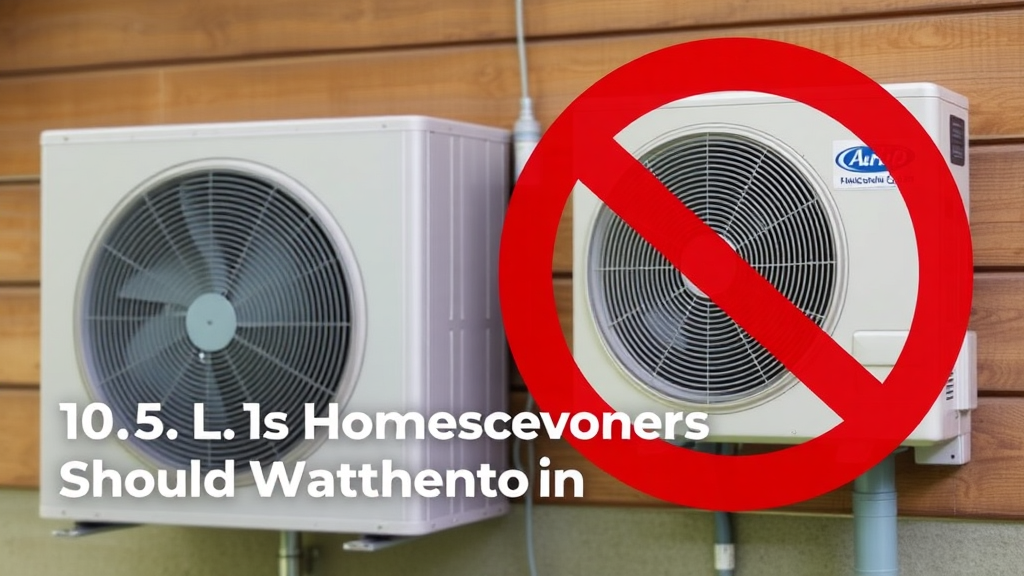
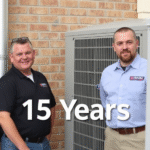
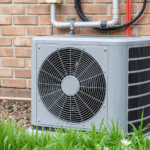
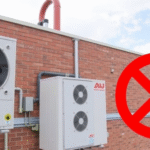
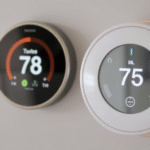
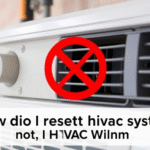
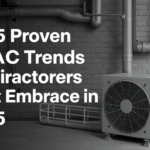
Leave a Reply